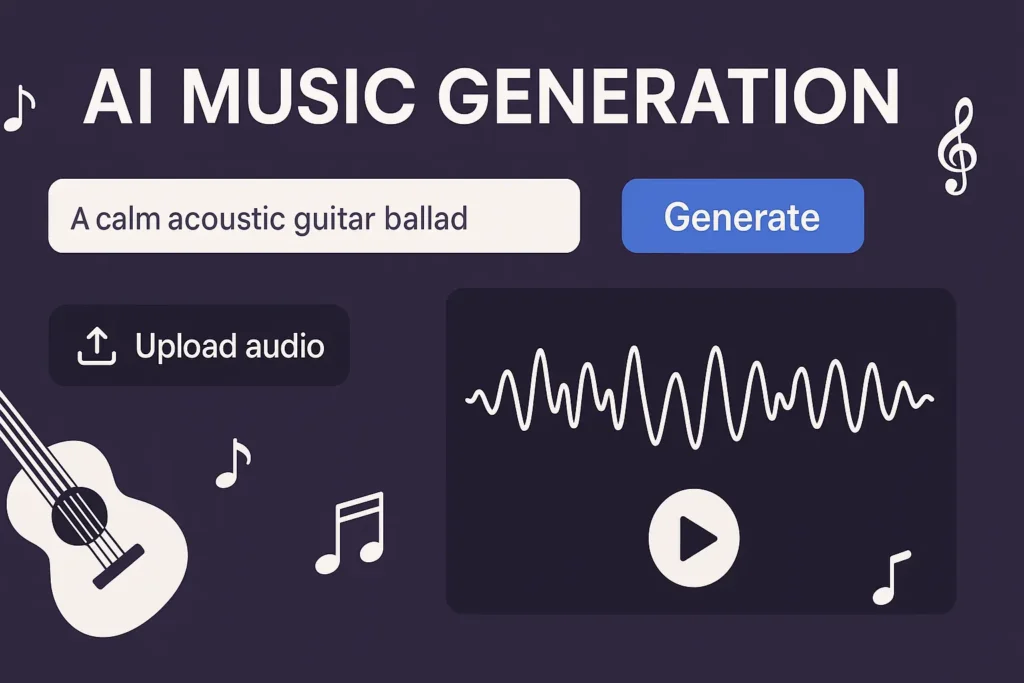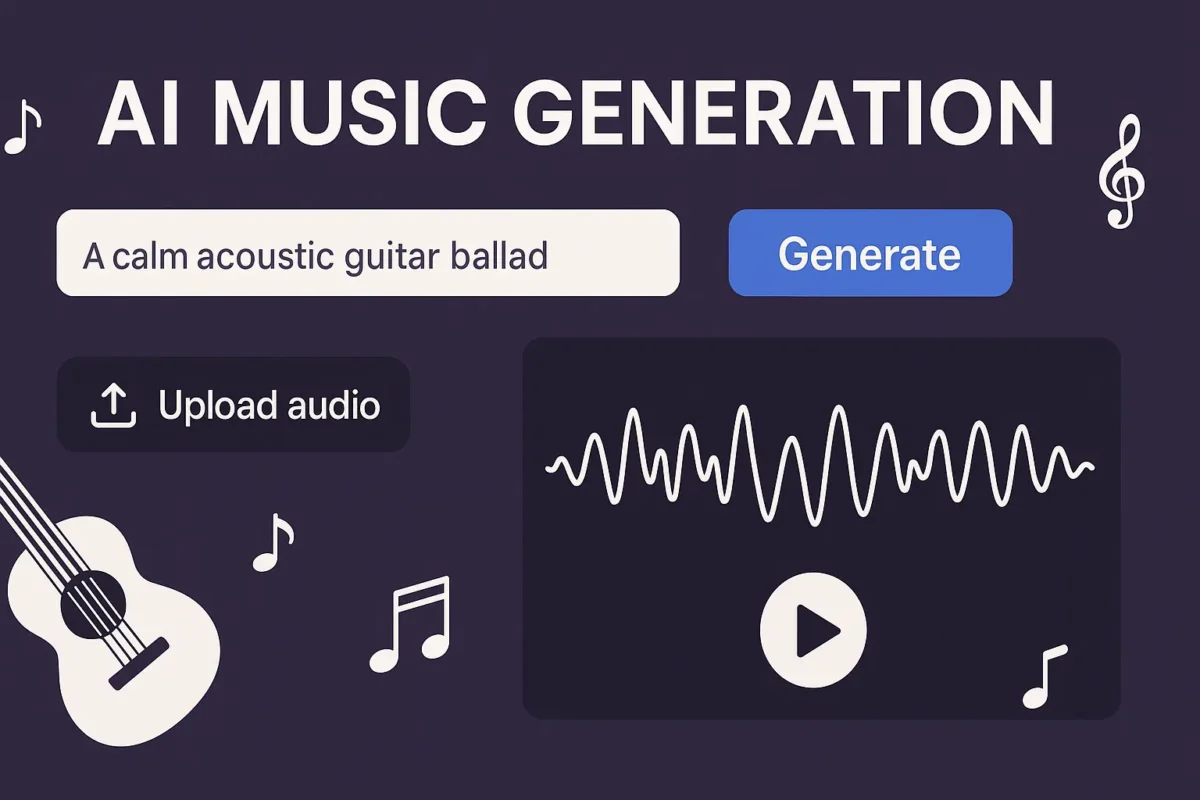OpenAI is developing a cutting-edge tool that lets users create original music by simply entering text or uploading audio prompts. This innovation follows their expansion beyond ChatGPT and signals a major leap for AI-driven creativity in music production..

From Text to Tracks: How Does This AI Music Generator Work?
Imagine typing in “upbeat synth track for a workout video” and instantly getting a custom song. That’s the idea behind OpenAI’s new AI music generator.
- Core Functionality: Creating original music from simple text prompts or audio inputs (e.g., “add a guitar accompaniment to this vocal melody”).
- Versatile Applications: Think background music for videos (like Sora’s audio counterpart!), instrumental tracks, even multi-vocal generation and AI-assisted mixing.
- Enhanced Control: Expect greater precision over style, tone, energy, and arrangement compared to earlier AI music attempts.
This new tool isn’t just about generating sounds; it’s about giving you control over the music you create
Not Their First Rodeo: OpenAI’s Journey in AI Music
A Quick Trip Down Memory Lane: Before the Latest Beat
- MuseNet (2019): OpenAI’s early foray into composing MIDI pieces.
- Jukebox (2020): Generated raw audio with rudimentary singing, but struggled with coherence.
These were interesting experiments, but the technology wasn’t quite ready for prime time. This new tool aims to change that.
Why Juilliard? A Strategic Harmony for AI Music
OpenAI is collaborating with students. Juilliard students are annotating musical scores to provide high-quality training data. This aims to give the AI a nuanced understanding of musical structure, emotion, and technical aspects. This is a move to mitigate copyright concerns by using ethically sourced data. It’s worth noting that while students are involved, The Juilliard School institutionally has stated no formal involvement.
Key Features in Focus
- Generate music from simple text prompts.
- Add custom instrumental accompaniments to vocal tracks.
- Create background music tailor-made for videos or podcasts.
- Integrate with ChatGPT and Sora for seamless multimedia creation.
Impact for Creators and Producers
- Musicians can use AI for instant sound mock-ups or accompaniment.
- Video creators and marketers gain access to royalty-free, on-demand background music.
- Fast, scalable content generation enables new creative workflows and storytelling formats.
Why It’s a Game-Changer for Content
OpenAI’s AI music tool combines state-of-the-art generative models with collaboration from iconic music institutions. This approach not only democratizes access to music production but also sets a new standard for multimodal storytelling—where words, music, and visuals combine for richer creator experiences.
You might also like our post > Top Ai Music Generator
Frequently Asked Questions About OpenAI’s AI Music Generator
Q: What is OpenAI’s new AI music generation tool called?
A: An official name for OpenAI’s new AI music generation tool has not yet been announced. It is currently in development and testing.
Q: How does OpenAI’s AI music generator differ from previous AI music models?
A: OpenAI’s latest tool builds on predecessors like MuseNet and Jukebox, aiming for enhanced control over style, tone, and energy, generating full tracks from both text and audio prompts, and potentially integrating with platforms like Sora and ChatGPT.
Q: Are there concerns about copyright with OpenAI’s AI music?
A: Yes, significant concerns exist regarding copyright infringement, especially concerning the use of copyrighted material for training data. OpenAI is reportedly collaborating with Juilliard students to annotate original scores to address some of these issues.
Q: Can OpenAI’s AI music tool replace human musicians?
A: While the tool aims to democratize music creation and assist artists, many industry professionals and artists express concerns about job displacement and the irreplaceable “soul” and emotional depth of human-created music. It’s largely seen as a powerful tool for collaboration rather than a full replacement.
Q: Will OpenAI’s AI music generator be integrated with ChatGPT or Sora?
A: There is speculation that the new music tool could be integrated with existing OpenAI platforms like ChatGPT and Sora, offering an integrated experience for content creation. However, official details are not yet confirmed.
Q: What is the role of Juilliard students in OpenAI’s music AI project?
A: Students from The Juilliard School are reportedly involved in annotating musical scores to create a comprehensive and high-quality training database for the AI model. This collaboration aims to instill a nuanced musical understanding in the AI.

